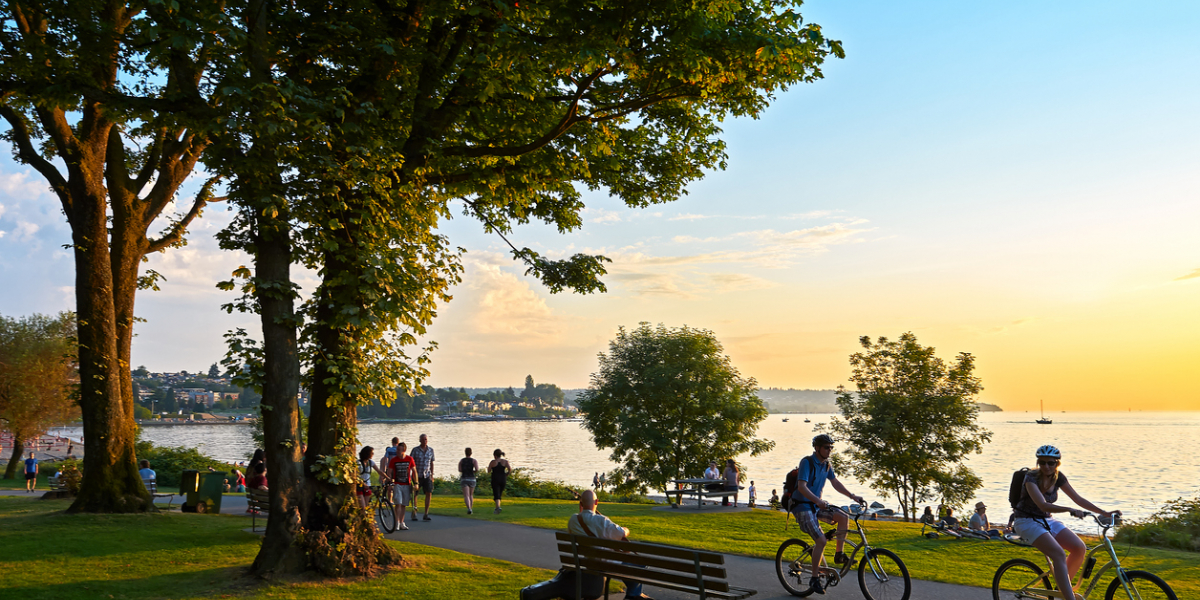
October 10, 2023
By Talha Awan and Grace Kamba
Today is World Mental Health Day, which offers an opportunity to both raise awareness of the causes of mental health issues and discuss potential solutions. This year’s theme, ‘mental health is a universal human right’, points to a need for actions that promote and protect everyone’s mental health. Today, over 80% of Canadians live in urban centers, but research has shown that people living in cities are at much greater risk of experiencing stress, anxiety, and depression. This post explores how natural areas in urban settings are a critical resource for improving mental health in our rapidly urbanizing world.
Mental illness takes a heavy toll on Canada’s economy and communities, and those living in cities bear the brunt of this. The economic cost of mental illness in Canada is estimated at over $50 billion per year, with health care, lost productivity, and reductions in quality of life being the biggest contributors. Urbanization is a key factor in mental illness in Canada — concrete jungles, social isolation, and sensory overload are just some of the ways in which city life contributes to poor mental health. Part of the problem is that urbanization has disconnected many individuals from the natural world.
A growing body of research suggests that even small doses of nature within urban settings can have profound positive effects on mental health. Natural areas deliver sights, sounds, and smells that can improve our mental health by helping us relax, resetting our focus, and bringing us closer to each other. As cities continue to grow and evolve, it is essential to prioritize the preservation and creation of green spaces to support the mental well-being of their residents, especially in communities that have inequitable access to urban nature.
Natural areas in cities offer an escape from the mental strain associated with urban living. Spending time in green spaces, such as parks, gardens, or urban forests, can lower cortisol levels, the hormone associated with stress. Walking in natural settings decreases neural activity in parts of the brain linked with anxiety and depression and triggers the release of endorphins, the brain’s natural mood elevators.
Natural areas in cities offer a much-needed cognitive boost to counteract the mental fatigue from constant stimuli that hinder productivity and well-being. Exposure to natural environments improves cognitive functioning, restoring our ability to pay attention, execute tasks, and cope with stressors. Even passive nature experiences, like taking time to look at nature through the window, can be helpful for improving attention and performance.
Green spaces in cities can help foster social connections that significantly improve mental health by reducing feelings of isolation and loneliness. Parks and green spaces promote social cohesion by serving as communal gathering points, providing opportunities for social interaction and the formation of supportive communities. Neighborhoods where social events are held in venues with green space encourage greater levels of participation, a sense of belonging, and cooperation among neighbors.
The connection between urban nature and mental health points to the profound benefits of green spaces in our cities and the potential cost savings from investing in urban nature. Incorporating more urban nature into our daily lives requires the expansion of green infrastructure in our communities. This means more parks, trees, urban forests, and innovative solutions like green roofs and urban farms in dense urban settings to improve proximity to quality green spaces while ensuring that racialized, Indigenous, and other marginalized groups are involved in planning and management. Taking meaningful steps towards creating healthier and happier cities for all residents begins by recognizing the important role of urban nature in promoting mental health.